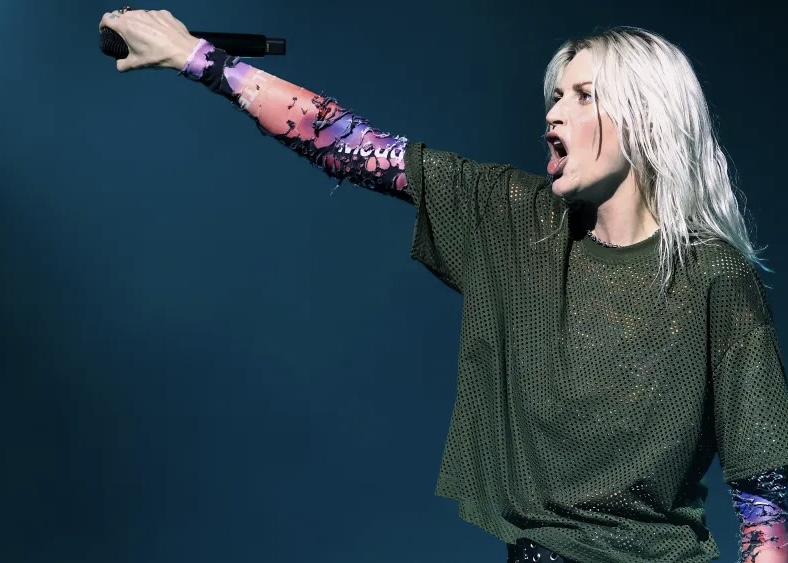Waxahatchee's "Mud": A Reckoning with Messy Relationships
Katie Crutchfield of Waxahatchee has a unique talent for unraveling complex emotions with poetic precision, and her latest track, "Mud," is no exception. The song plunges into the murky waters of relationships —losing oneself in romance, the damage of codependence, and the quiet violence of detachment. Rather than offering a traditional take on heartbreak, "Mud" focuses on the exhausting aftermath — the muddy residue left behind when emotional labor outweighs real connection.
Verse 1: The Mess We Become
The song opens with an unsettling image:
“And we’re the same, have it out down in the mud
Glance at your name written out in your blood.”
From the outset, it’s clear there are no happy endings here, but instead of assigning blame, the speaker takes accountability for their role in the relationship’s collapse. The mud becomes a metaphor for emotional baggage and toxic dynamics — impossible to navigate without getting dirty.
At the same time, there’s an undercurrent violence: from the name written in blood to the final line of the verse, “Yearning for a restless hell.” There’s an element of damnation, as if the speaker is not only condemning the relationship but welcoming its destruction as a form of catharsis. Crutchfield creates a tension in “restless hell,” using it to symbolize both the fraught relationship and the turmoil experienced after its end, suggesting there’s no clean exit from emotional chaos.
Chorus: Not Your Angel, Not Your Crutch
The chorus delivers the song’s thesis with blunt force:
“Call me an angel in the background
Singing, ‘I’m not the one.’”
There’s a defiant tension here. The “angel” metaphor evokes the image of someone selflessly supportive, but the phrase “I’m not the one” rejects this subservience. There’s a shift as the narrator hints they no longer buy into this dynamic. They’re no longer willing— or perhaps no longer able — to play the role of selfless helper.
This tension deepens with the final lines of the chorus:
“I might beam with empty virtue
But I’m a feather blowing
In your storm garbage, weather-worn.”
These lines compound to form the image of a partner so caught up in the relationship that they become secondary to themselves. The feather metaphor underscores the fragility of maintaining a sense of self when caught in someone else’s storm. A feather should symbolize freedom and exploration, but here it’s caught up in a whirlwind, ultimately ending as “garbage, weather-worn.” Crutchfield uses this potent imagery to explore the inner turmoil of someone torn between caring deeply for their partner and recognizing their own limitations.
Verse 2: Self vs. Self
The second verse pivots inward:
“I take my aim at a girl suffering
We share a name and a need to not be seen.”
The “girl suffering” represents parts of the speaker that she’s trying to confront, or take aim at, and ultimately let go. However, the next lines complicate this self-reckoning:
“She might take it personally
Put on airs, undercut me ”
Here, the narrator anticipates her own defenses — “take it personally,” “put on airs,” “undercut me” — as mechanisms to avoid change, suggesting that confronting pain is not a linear process.
The Art of Letting Go (Badly)
Instead of closure, the outro offers resigned acceptance.
“Said I don’t want nothin’ to do with it
Yeah, I’m not the one
To keep betting against the odds.”
There’s a defeated acceptance here. Crutchfield isn’t claiming the moral high ground; she’s waving a white flag, admitting defeat. It’s a reminder that letting go doesn’t always feel triumphant. Sometimes, it feels like giving up.
But more than defeat, the final lines offer an admission of fear:
“If I held you any tighter, call me terrified, call me unprepared
You might be stupid but you’re not scared.”
The speaker claims their fear and uncertainty, drawing a clear connection that fear of change kept this toxic relationship going for longer than it should have.The last line is cutting but not cruel. After the narrator’s admission of their own insecurity and fear, “You’re not scared,” sounds almost admiring and complementary. After all, fear often keeps us clinging to the familiar.
Conclusion
"Mud" is Waxahatchee at her sharpest. It’s a self-aware critique of the ways relationships sometimes create more turmoil than they’re worth and a meditation on knowing when it’s time to call it quits. It’s a song for anyone who has lost themselves in a relationship and fought to find themselves again. There’s no tidy moral here, no redemption arc. Just the simple, painful truth: walking away isn’t always clean. Sometimes, you’re still covered in mud.
.png)









